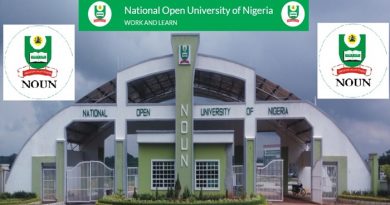Philip Morris begins manufacturing in Nigeria
Philip Morris International (PMI), with operations in 181 countries, has finalized plans to commence manufacturing in Nigeria before the end of 2016. This investment comes in less than two years of their starting operations in Nigeria and clearly indicates the confidence the company has in the Nigerian economy.
Upon its entry to Nigeria last year, PMI took the opportunity provided by the ECOWAS Trade Liberalisation Scheme (ETLS) to bring its brands to Nigeria from its manufacturing plant in Senegal, in what is understood to be in keeping with its regionalisation policy.
Managing Director of PMINTL Nigeria Limited, Mr. Coskun Kagan Dicle said, “We are proud to be in Nigeria at a time when economic diversification is so critical to Nigeria’s long term economic objectives. Our company was incorporated in December 2014 and during 2015 received all regulatory approvals required to commence importation of some of our world-class brands into Nigeria under the ECOWAS Trade Liberalisation Scheme from our factory in Senegal.
“However, in pursuit of our long term objectives in Nigeria, we have entered into a strategic agreement with International Tobacco Company Limited (ITC), a Nigerian company, to commence local manufacturing of some of our brands before the end of 2016. We are proud that in less than two years of our presence in Nigeria, we have already reached the stage of starting local manufacturing, which has been possible thanks to the relentless efforts of our strong team of Nigerian talents passionate and dedicated to contributing to the Nigerian economy.”
He explains further, “through this agreement, PMI will be investing in technology and capacity building in ITC’s factory, thereby creating additional employment in Nigeria. PMINTL Nigeria and its trade partners are already providing employment to thousands of Nigerians. Over the medium term, PMI intends to make further investments in manufacturing capacity in Nigeria.”
On the benefits of its plans, Dicle says, “We believe that this undertaking will benefit all parties involved. While our consumers will have their preferred quality brands readily available, the locals at Ilorin and environs, will benefit in several ways, including employment.
“PMI is also operating in agronomy around the world, including a number of countries in Africa, through their leaf suppliers, who are reaching over 200,000 farmers. Similarly PMINTL Nigeria is exploring the possibility to work with local business partners to share its technological know-how and deploy good agricultural practices to obtain high-quality crops, high yields and good income for farmers, while minimising the environmental impact and fostering sustainability.
“Over time, should PMI quality standards be met, we believe this could help the achievement of agricultural objectives of the government and could also become a contributor to foreign currency earnings through exports. The various arms of government would earn necessary income from levies, duties and taxes, with ITC being able to put its manufacturing facilities to good commercial use.”
On how his company would continue to meet demand in the Nigerian market before the kick-off of local manufacturing, Dicle disclosed that the company has secured approval from relevant authorities to continue to import from its manufacturing facility in Senegal under the ETLS.
The ETLS is the main ECOWAS operational tool for promoting the West Africa region as a free trade area, in tandem with one of the objectives of the Community, which is the establishment of a common market through “the liberalisation of trade by the abolition, among member states, of customs duties levied on imports and exports, and the abolition among member states, of non-tariff barriers,” according the ECOWAS website.




